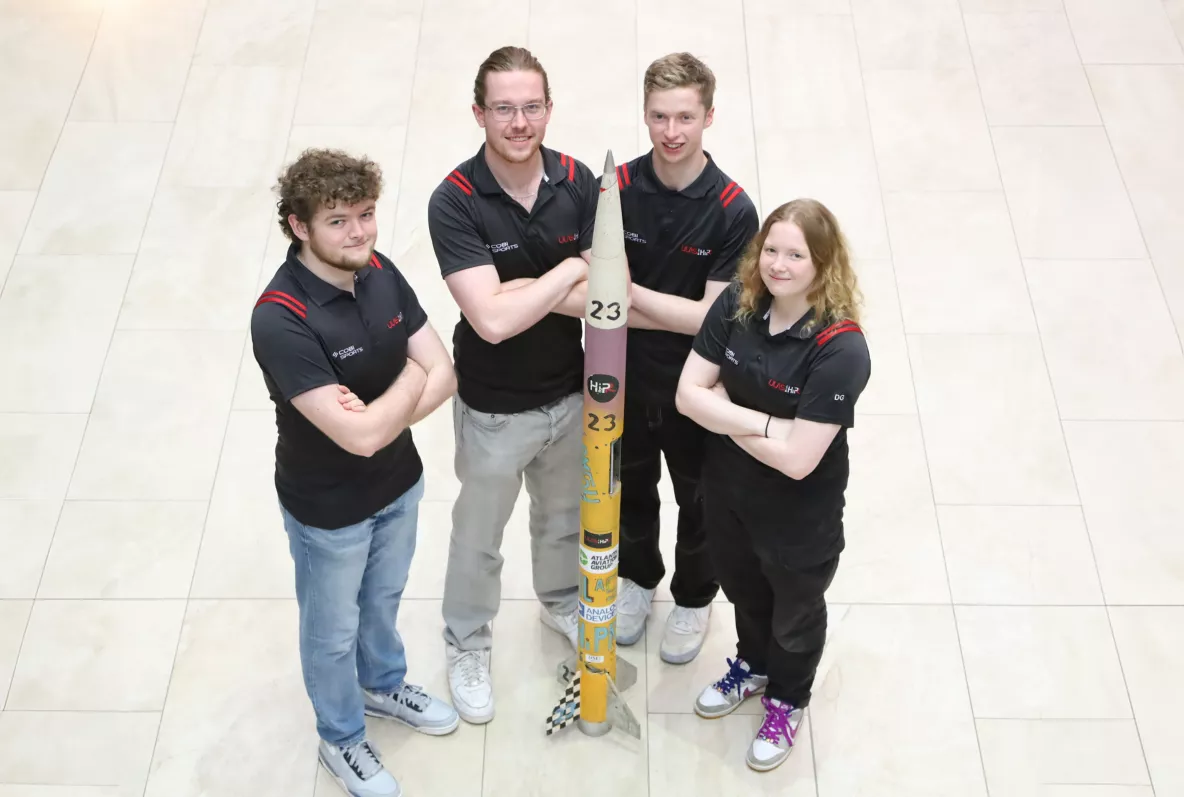
A group of University of Limerick students have set their sights on competing to the highest level at two international rocketry competitions this year.
The UL Aeronautical Society High-Powered Rocketry Team (ULAS HiPR), set up by aeronautical engineering graduate Daire O’Sullivan in November 2023, became the first-ever group to represent the Republic of Ireland at the European Rocketry Competition (EuRoC) held in Portugal last year.
Buoyed by this experience and others at competitions in the UK, the multidisciplinary team made up of 55 students from across the University hope to better previous results at two major rocketry competitions this year.
These are Mach 25, a university competition located in Machrihanish, Scotland, in July and EuRoC 2025 in Portugal in October.
Team spokesperson and third year product design student, Jay Looney, outlines how students with different skill sets are coming together to make their flight dream a reality, and some of the complexities involved in the project.
“We have an electronics team and a payload team; the payload is like a small satellite that is carried by the rocket. An aerodynamics team, whose job is to look at the shape of the fins and the nose, and a structures team who looks at the composition of the rocket itself. Finally, the propulsion team are tasked with picking the motor.”
“My background in product design allows me to focus a lot on the construction of the rocket and then we have aeronautical engineers who concentrate on the structures and aerodynamics. Our Immersive Software Engineering (ISE) students would do a lot of coding to allow for the payloads, including the use of artificial intelligence (AI). We are also lucky to have some fourth year Electronic and Computer Engineering Students who are helping with the rocket’s electronics.”
Outside of the technical skills required for the rockets’ construction, the team has recruited students from the Kemmy Business School to handle the team’s branding, marketing, communications and sponsorship of the project—giving it a University-wide footprint.
Marks are awarded during competitions for the rocket hitting a certain altitude, for the team’s technical report, the rocket’s in-flight performance, payload and teamwork. All of the testing the UL team can do prior to competition must be done without fuelling the rocket, with the only test flights taking place at competitions for safety reasons.
The team has two major sponsors, Atlantic Aviation Group—an aircraft Maintenance, Repair and Overhaul company based in Shannon—and Analog Devices, a leading global semiconductor manufacturer with a base in Limerick.
Third year ISE student and ULAS HiPR Project Manager, Dervla Gargan, isn’t surprised at the project’s appeal and believes the sky really is the limit for the UL team in 2025.
“Last year’s EuRoC competition received 50 applicants and from that 50, only 25 were selected to compete and we were in that 25, so to finish fifth in the payload category was a great result for the team. People want to be part of this.”
More information about the UL Aeronautical Society can be found on the Clubs and Socs website.